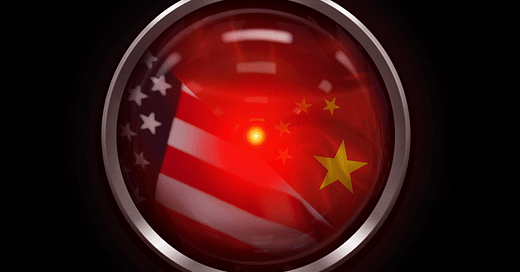The AI revolution calls for a foreign policy revolution
A cold war between the two AI superpowers is a recipe for apocalypse
This piece (in slightly different form) is also appearing in The Washington Post.
At last month’s Senate hearing on artificial intelligence, Sam Altman, the CEO of OpenAI, conceded that the technological revolution his company is accelerating has its downsides. Though AI has “the potential to improve nearly every aspect of our lives,” it could also bring socially disruptive changes like job displacement, he said—and “if this technology goes wrong, it can go quite wrong.” At a conference in January, he’d gone further: “I think the worst case is lights out for all of us.”
If you ask other experts on AI to describe its likely impact, an unsettling number of them come down somewhere on the spectrum defined by Altman’s concerns—somewhere between socially destabilizing and globally catastrophic.
So it’s not surprising that there is serious talk in Washington of regulating AI. But the ideas getting the most attention—such as Altman’s suggestion that building the most powerful AIs require a federal license—aren’t enough. The AI challenge calls not just for innovative domestic policies but for a basic reorientation of foreign policy—a change comparable in magnitude to the change ushered in by George Kennan’s 1947 “X” article in Foreign Affairs, which argued for a policy of “containing” the Soviet Union.
But this time the adversary is China, not the USSR, and this time the required redirection is toward engagement, not confrontation. In light of the AI revolution, it is in America’s vital interest to reverse the current slide toward Cold War II and draw China into an international effort to guide technological evolution responsibly.
You don’t have to buy the most catastrophic AI scenarios—like the ones in which AIs gain power and deem humans a disposable nuisance—to believe technology is at a dangerous historical juncture. You can focus instead on the “socially destabilizing” end of the spectrum, and imagine where present trends could lead within a few years. Whatever AI’s eventual benefits (which will be many), it is pretty much guaranteed to:



